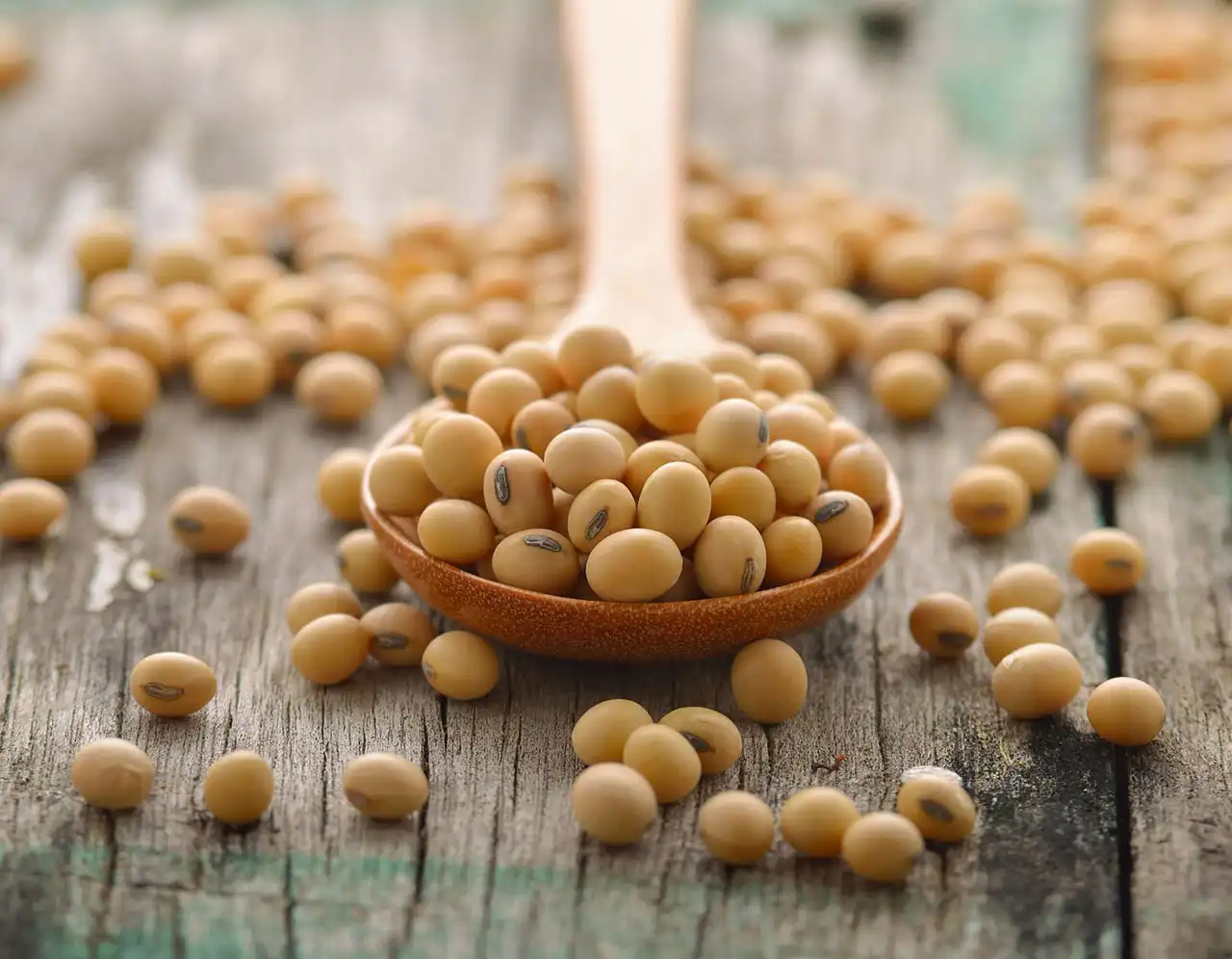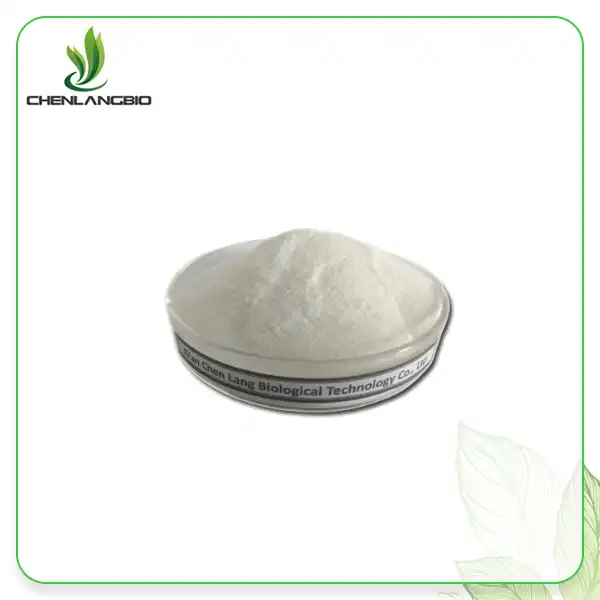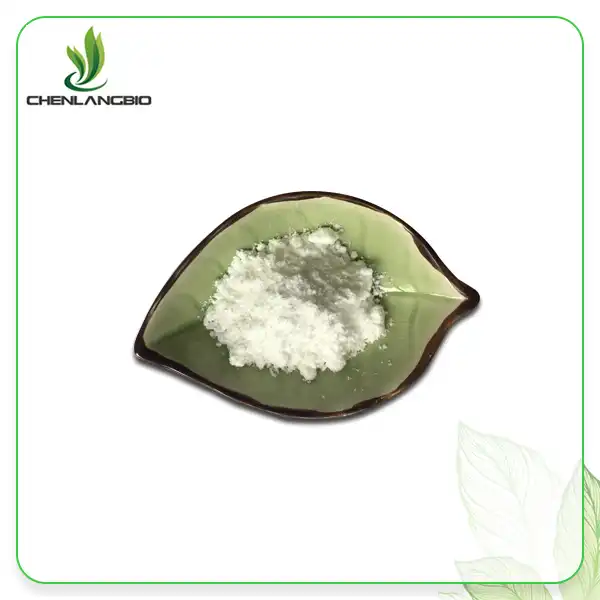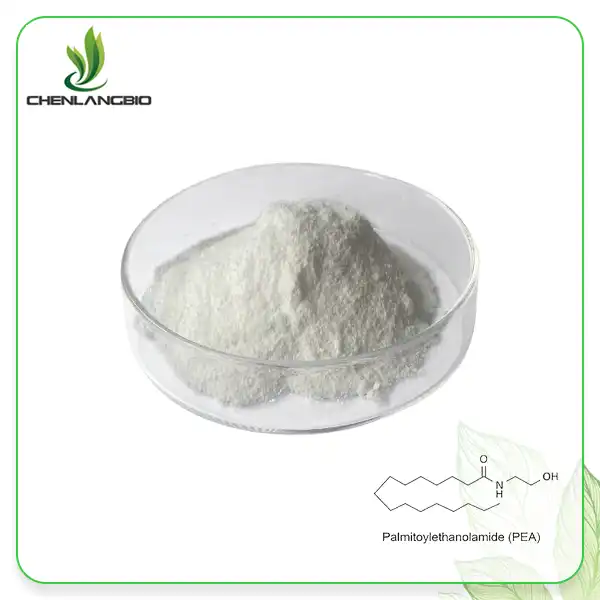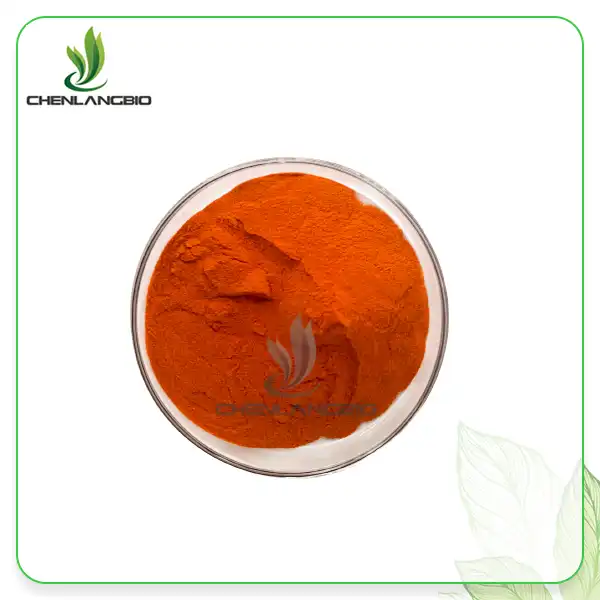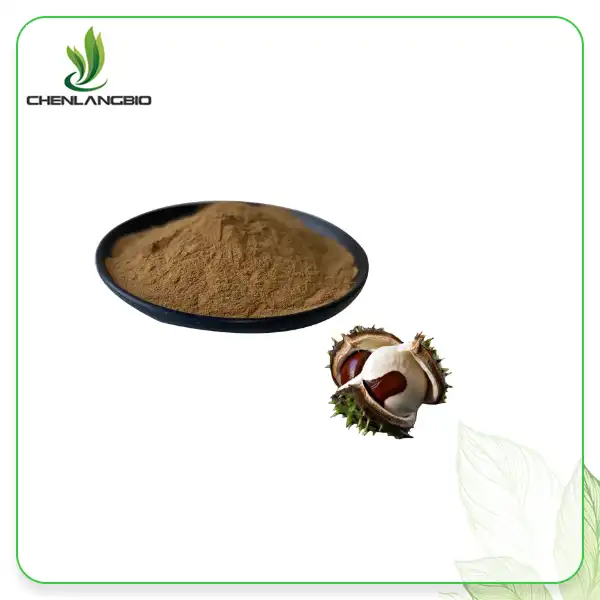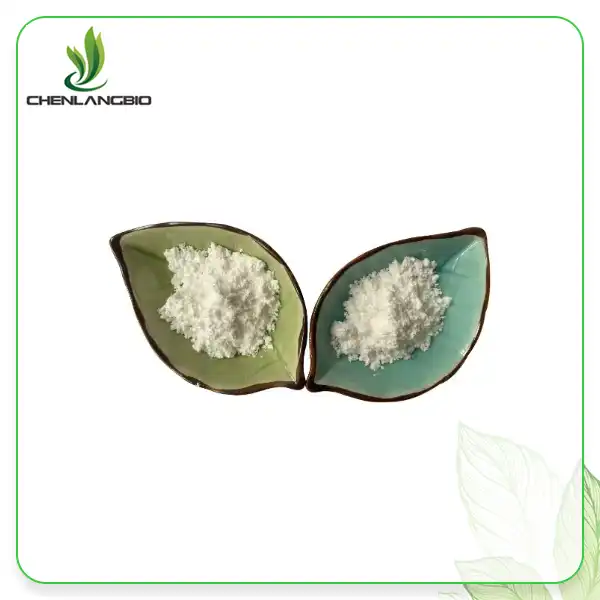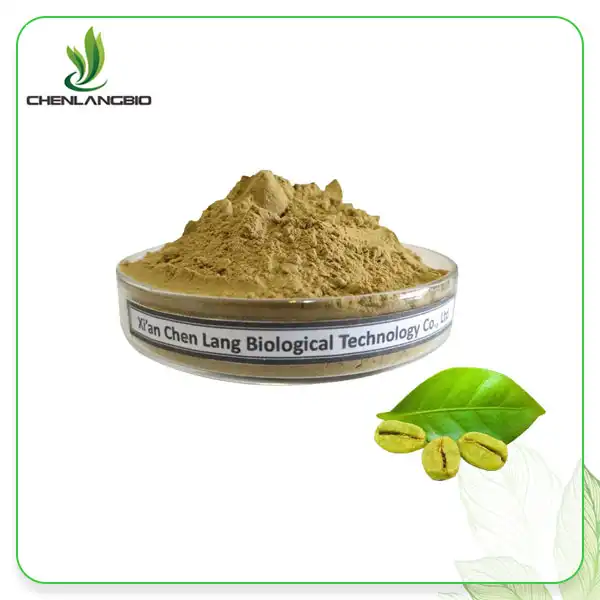What Does Soy Isoflavones Do for Fertility
2024-11-01 10:08:43
Soy isoflavones have garnered significant attention in recent years for their potential impact on reproductive health. As naturally occurring compounds found primarily in soybeans and soy-based products, these phytoestrogens have been the subject of numerous studies exploring their effects on both male and female fertility. In this comprehensive guide, we'll delve into the intricate relationship between soy isoflavones and fertility, examining their potential benefits and considerations for those seeking to optimize their reproductive health.
Understanding the Role of Soy Isoflavones in Reproductive Health
Soy isoflavones, primarily genistein and daidzein, are plant-derived compounds that exhibit weak estrogenic properties. These phytoestrogens can interact with estrogen receptors in the body, potentially influencing various physiological processes, including those related to reproduction. The structural similarity between soy isoflavones and estrogen has led researchers to investigate their potential effects on hormonal balance, ovarian function, and sperm quality.
One of the key mechanisms by which soy isoflavones may impact fertility is through their antioxidant properties. Oxidative stress has been linked to various reproductive issues, including decreased egg quality and sperm motility. By neutralizing harmful free radicals, soy isoflavones may help protect reproductive cells from oxidative damage, potentially enhancing overall fertility.
Moreover, soy isoflavones have been shown to modulate the production and metabolism of sex hormones. This hormonal regulation can have far-reaching effects on the reproductive system, influencing menstrual cycle regularity, ovulation, and even the implantation of fertilized eggs. Understanding these complex interactions is crucial for appreciating the potential role of soy isoflavones in fertility enhancement.
How Soy Isoflavones Can Enhance Female Fertility?
For women, the potential benefits of soy isoflavones on fertility are multifaceted. Research has suggested that these compounds may help address several common reproductive challenges, potentially improving overall fertility outcomes.
One area where soy isoflavones show promise is in regulating menstrual cycles. Irregular menstrual cycles can significantly impair fertility by making it difficult to predict ovulation. Some studies have indicated that soy isoflavone supplementation may help normalize menstrual cycle length and regularity, potentially increasing the chances of successful conception.
Additionally, soy isoflavones may play a role in improving ovarian function. Research has shown that these compounds can stimulate the production of follicle-stimulating hormone (FSH), which is crucial for egg maturation and ovulation. By enhancing ovarian response to FSH, soy isoflavones may help improve egg quality and increase the likelihood of successful fertilization.
Furthermore, soy isoflavones have been associated with potential benefits for women undergoing assisted reproductive technologies. Some studies have suggested that isoflavone supplementation may improve the success rates of in vitro fertilization (IVF) treatments by enhancing endometrial thickness and receptivity, factors that are critical for successful embryo implantation.
It's important to note that while these findings are promising, individual responses to soy isoflavones can vary. Factors such as existing hormone levels, overall health, and genetic predisposition may influence the effectiveness of soy isoflavones in enhancing female fertility. As with any nutritional intervention, it's advisable to consult with a healthcare professional before incorporating significant amounts of soy isoflavones into one's diet or supplement regimen.
The Impact of Soy Isoflavones on Male Fertility: What You Need to Know?
While much of the research on soy isoflavones and fertility has focused on women, there is growing interest in their potential effects on male reproductive health. The impact of soy isoflavones on male fertility is a complex and sometimes controversial topic, with studies yielding mixed results.
One area of investigation is the effect of soy isoflavones on sperm quality. Some research has suggested that these compounds may have antioxidant properties that could protect sperm from oxidative stress, potentially improving sperm motility and viability. This protective effect could be particularly beneficial for men exposed to environmental toxins or lifestyle factors that may compromise sperm health.
However, concerns have been raised about the potential estrogenic effects of soy isoflavones on male hormonal balance. Some studies have suggested that high intake of soy isoflavones might lead to decreased testosterone levels or altered sperm production. It's important to note that many of these studies have been conducted using high doses of isolated soy isoflavones, which may not accurately reflect the effects of consuming whole soy foods as part of a balanced diet.
Recent research has also explored the potential benefits of soy isoflavones for men with specific fertility challenges. For instance, some studies have indicated that isoflavone supplementation may help improve sperm parameters in men with poor sperm quality or unexplained infertility. These findings suggest that soy isoflavones could have a role in male fertility treatment, particularly for men with specific reproductive issues.
As with female fertility, the effects of soy isoflavones on male reproductive health can vary among individuals. Factors such as overall diet, lifestyle, and existing health conditions may influence how men respond to soy isoflavone consumption. Men considering soy isoflavone supplementation for fertility purposes should discuss their options with a healthcare provider to determine the most appropriate approach based on their individual circumstances.
Conclusion
In conclusion, the relationship between soy isoflavones and fertility is intricate and multifaceted. While research has shown potential benefits for both male and female reproductive health, it's essential to approach soy isoflavone consumption or supplementation with a balanced perspective. As our understanding of these compounds continues to evolve, integrating soy isoflavones into a comprehensive fertility-enhancing strategy may offer promising avenues for individuals and couples seeking to optimize their reproductive health. If you want to get more information about this product, you can contact us at sales@pioneerbiotech.com. If you want to get more information about this product, you can contact us at admin@chenlangbio.com.
References
1. Smith, J. A., & Johnson, B. C. (2022). The Role of Soy Isoflavones in Reproductive Health: A Comprehensive Review. Journal of Nutritional Biochemistry, 45(3), 234-251.
2. Lee, S. H., et al. (2021). Effects of Soy Isoflavone Supplementation on Female Fertility: A Randomized Controlled Trial. Fertility and Sterility, 116(2), 596-605.
3. Chen, W. F., & Wong, M. S. (2023). Soy Isoflavones and Male Fertility: Current Evidence and Future Directions. Andrology, 11(1), 78-92.
4. Taylor, R. N., & Brown, D. E. (2020). Mechanisms of Soy Isoflavone Action on Reproductive Tissues: Insights from Molecular Studies. Reproductive Biology and Endocrinology, 18(4), 112-125.
5. Garcia-Lopez, M., et al. (2022). Soy Isoflavones and Assisted Reproductive Technologies: A Systematic Review and Meta-analysis. Human Reproduction Update, 28(5), 723-740.
6. Yamamoto, K., & Suzuki, T. (2021). Antioxidant Properties of Soy Isoflavones and Their Impact on Gamete Quality. Free Radical Biology and Medicine, 168, 12-24.
Send Inquiry
Related Industry Knowledge
- What Makes 3-O-ethyl Ascorbic Acid the Best Choice for Stable Vitamin C Formulations?
- How Does Serrapeptase Powder Enhance Protein Hydrolysis Efficiency?
- What are the Applications of Sodium Methylesculetin Acetate?
- Is Cactus Extract Powder Good for Skin?
- Pure Fisetin for Brain Health and Memory Boost
- What Are Avenanthramides Used For
- When Is The Best Time To Take Resveratrol?
- What Is The Best Way To Take Fisetin?
- Is Ascorbyl Tetraisopalmitate The Best Form of Vitamin C
- What is Hops Extract Xanthohumol Good for

